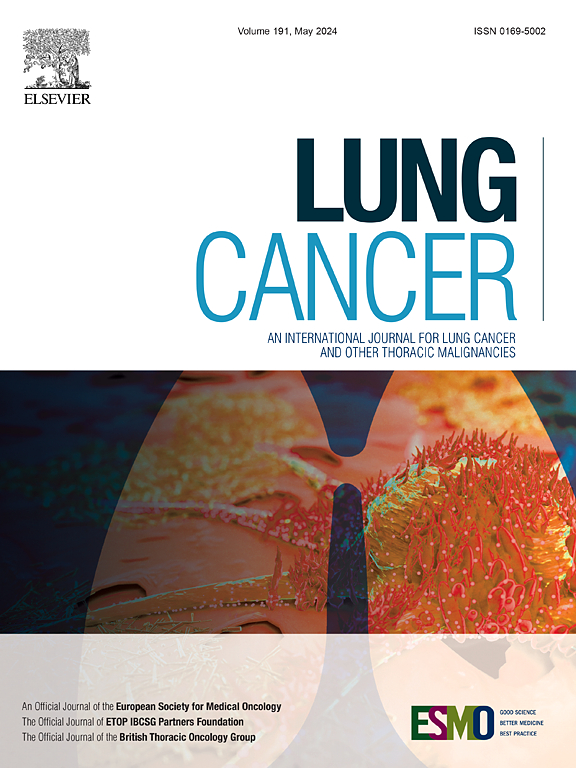Crispr-mediated genome editing reveals a preponderance of non-oncogene addictions as targetable vulnerabilities in pleural mesothelioma
IF 4.5
2区 医学
Q1 ONCOLOGY
引用次数: 0
Abstract
Pleural mesothelioma (PM) is an aggressive cancer with limited treatment options. In particular, the frequent loss of tumor suppressors, a key oncogenic driver of the disease that is therapeutically intractable, has hampered the development of targeted cancer therapies. Here, we interrogate the PM genome using CRISPR-mediated gene editing to systematically uncover PM cell susceptibilities and provide an evidence-based rationale for targeted cancer drug discovery. This analysis has allowed us to identify with high confidence numerous known and novel gene dependencies that are surprisingly highly enriched for non-oncogenic pathways involved in response to various stress stimuli, in particular DNA damage and transcriptional dysregulation. By integrating genomic analysis with a series of in vitro and in vivo functional studies, we validate and prioritize several non-oncogene addictions conferred by CDK7, CHK1, HDAC3, RAD51, TPX2, and UBA1 as targetable vulnerabilities, revealing previously unappreciated aspects of PM biology. Our findings support the growing consensus that stress-responsive non-oncogenic signaling plays a key role in the initiation and progression of PM and provide a functional blueprint for the development of unprecedented targeted therapies to combat this formidable disease.
Crispr 介导的基因组编辑揭示了胸膜间皮瘤中的非癌基因成瘾性是可靶向的薄弱环节。
胸膜间皮瘤(PM)是一种侵袭性癌症,治疗方案有限。尤其是肿瘤抑制因子的频繁缺失,是该病难以治疗的关键致癌驱动因素,阻碍了癌症靶向疗法的开发。在这里,我们利用 CRISPR 介导的基因编辑技术对原发性骨髓瘤基因组进行了研究,系统地发现了原发性骨髓瘤细胞的易感性,并为靶向抗癌药物的发现提供了循证依据。这项分析使我们能够高置信度地确定许多已知和新的基因依赖关系,这些基因依赖关系竟然高度富集于非致癌通路,这些通路涉及对各种应激刺激的反应,特别是 DNA 损伤和转录失调。通过将基因组分析与一系列体外和体内功能研究相结合,我们验证并优先考虑了 CDK7、CHK1、HDAC3、RAD51、TPX2 和 UBA1 所赋予的几种非致癌基因成瘾性,将其作为可靶向的脆弱性,揭示了 PM 生物学中以前未被认识到的方面。我们的发现支持了越来越多的共识,即应激反应性非致癌信号在原发性骨髓瘤的发生和发展过程中起着关键作用,并为开发前所未有的靶向疗法提供了功能蓝图,以防治这种可怕的疾病。
本文章由计算机程序翻译,如有差异,请以英文原文为准。
求助全文
约1分钟内获得全文
求助全文
来源期刊

Lung Cancer
医学-呼吸系统
CiteScore
9.40
自引率
3.80%
发文量
407
审稿时长
25 days
期刊介绍:
Lung Cancer is an international publication covering the clinical, translational and basic science of malignancies of the lung and chest region.Original research articles, early reports, review articles, editorials and correspondence covering the prevention, epidemiology and etiology, basic biology, pathology, clinical assessment, surgery, chemotherapy, radiotherapy, combined treatment modalities, other treatment modalities and outcomes of lung cancer are welcome.
 求助内容:
求助内容: 应助结果提醒方式:
应助结果提醒方式:


